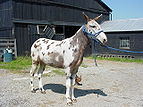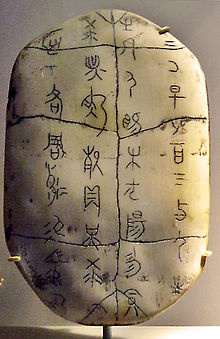Inversions in English
What is an inversion? In general, an
"inversion" is a changed order of things. If X usually comes before
Y, the inverted order will be Y first, then X. When looking at the grammar of
the English language we see inversions for instance in the normal order of the
subject and the verb in a sentence. To explain what an inversion is in English,
first think of a simple sentence like: "Graffiti is ugly." In
sentences like this the subject (graffiti) must come before the verb (is). This
is the normal order. The most common example of the inverted order of the
subject and the verb is seen in questions such as: "Is graffiti
ugly?" The English language often uses this kind of inversion to make a question,
but this is not the only time that the normal order of the subject and the verb
in a sentence is inverted.
In the ECPE grammar section there
will be a few questions where you have to spot the correct order of the words.
Sometimes an inversion is needed; sometimes not.
1 Questions and sentences that might
look like questions
The ECPE grammar section might try to
trick you with a sentence that might look like a question when it isn't.
They are bound to ask us _____.
1. if
has been cancelled the order
2. why
the order was cancelled
3.why
did we cancel the order
4. the
reason to be cancelled the order
We need "why" to complete
this sentence but option c is wrong because this sentence is not a question (so
we don't want the inverted verb-subject word order). The correct answer is b.
Don't be caught out by longer
questions that have the inversion in an initial phrase such as:"Could you
tell me..." "Would you mind..." etc. If there is an inversion at
the beginning like this, there won't be another inversion in the main part of
the sentence. For example:
Would you be so kind as to tell me
where the money is? (Not "...where is the money")
And don't be caught out by sentences
used to make enquiries that are not really questions.
"I wonder if you could tell me
when the next train to Houston is due." (Not "...when is the next
train to Houston due")
2 Inversions with "so",
"neither" and "nor"
When "so",
"neither" and "nor" are used to make short agreements they
are followed by an inversion.
"I am not into hip hop."
"Neither am I." (Or:
"Nor am I.")
"I am fond of flamenco
dancing."
"So am I."
Or they can be used in the following
way (also including an inversion).
Jennifer buys only organic fruit and
vegetables, and so does Hugh.
They don't mind the higher prices,
and neither do we. (Or: ...nor do we.)
3 Inversions after negative
adverbials
There are some words and phrases that
function as adverbials that sometimes need an inversion. Look at these two
sentences.
Bob rarely speaks to himself.
Rarely does Bob speak to himself.
The adverb here is
"rarely". If it comes after the subject, there is no inversion (as in
the first sentence), but if it comes before the subject, we need an inversion.
The word order is inverted and in the case of the sentence about Bob we use the
auxilliary verb "does" in the same way we do in questions (although
this isn't a question).
The sentence with the inversion
sounds more formal or more literary, and sentences like this are less common in
ordinary conversation.
Here are some examples with other
phrases used in the same way.
Seldom does Bob get invited to
parties. (seldom = rarely)
Never have we seen such a
breathtaking view.
At no time did the prisoner look as
if he might confess.
Not only is she a great dancer but
she is also an amazing mathematician.
Not until she took up rock climbing
did she overcome her fear of heights.
Under no circumstances* will
prisoners be allowed to give interviews to the media.
Little** did she realize that her
grandmother was really a wolf.
* This is used to describe rules for
which there are no exceptions. The alternative without the inversion is:
Prisoners will not be allowed to give interviews to the media under any
circumstances.
** This means that the girl didn't
realize at all that her grandmother was really a wolf.
N.B. Remember that no inversion is
possible if the adverbial doesn't come before the subject. Compare the
following sentences with the corresponding sentences above.
She is not only a great dancer but
she is also an amazing mathematician.
It was not until Effie left Brooklyn
that she realized how attached she had become to the place.
The following three are used to
describe an event that happened immediately after another.
Hardly had he stepped outside when it
started to rain.
Scarcely had he stepped outside when
it started to rain.
No sooner had he stepped outside than
it started to rain.
Note that the past perfect tense is
used to describe the event that happened first.
The following sentences with
"only" include inversions. Note that it is not always the first verb
that is inverted.
Only after he arrived at the airport
did he look for his passport.
Only if you look through this dark
glass will you be able to see the spots on the sun.
We accepted the invitation. Only
later did we suspect it might be a trap.
Only by threatening extreme physical
violence was the teacher able to control the class.
Note that there is no inversion when
"only" is used in the following way.
Only Fiona knew the answer to the
question.
3 Conditionals with inversions
In conditional (hypothetical)
sentences we can sometimes drop "if" and use an inversion.
Should you see Nigel, give him my
regards.
Were I in your shoes, I would make a
formal complaint.
Had I known it was her birthday, I
would have bought her a gift.
Note that "should",
"were" and "had" are the only verbs that can be inverted in
this way. (And "were" is also used with he, she and it.)
4 Inversions with "as"
Elisabeth was too shy to dance, as
was Gerald.
She decided to leave early, as did
Gerald.
In these sentences "as"
indicates the similarity between two things.
5 Inversions with "so" and
"such"
So excited were they that they
couldn't sit still.
Such was their excitement that they
began to jump up and down.
Note that "so" is followed
by an adjective and "such" can be replaced by "so great"
(So great was their excitement that...).
6 Inversions after adjectives
A few very literary sentences begin
with an adjective and include an inversion.
Blessed are the children who are
still unaware of what the future holds.
Gone* are the days when I could have
been happy.
* Here the past participle is used
like an adjective.
However there is no inversion in the
following sentence.
Strange as it may seem, we were sorry
to leave in the end
Look at these examples,
At no time
e.g.
At no time did I say I would accept late homework.
Hardly........when
This is used to refer to an event
that quickly follows another. It is
usually used with the past perfect.
e.g. Hardly
had I got into bed, when there was a knock at the door.
Less used is Hardly....before.
e.g. Hardly
had I left before the trouble started.
Little
e.g. Little
did I know that he was a compulsive liar.
Little does she know what surprises
we have in store for her.
No sooner.....than
This is used to refer to an event
that quickly follows another. It is
usually used with the past perfect, but sometimes with the simple past.
e.g. No
sooner had I reached the door than I realised it was locked.
No sooner did I reach the door than I
realised it was locked.
Not + object
e.g. Not a single word did she say.
Not only.....but also
e.g. "Not
only has McDonalds, which employs over 1
million people worldwide, played a
huge role in pioneering low standards now equated with the word
"McJobs", but it has also decided to restrict our ability to have a
public discussion about the impact of the McJobs phenomenon", Naomi Klein,
"No Logo: Taking Aim at Brand Bullies" (Toronto: Vintage Canada,
2000)
Not until
e.g.
Not until January will I have a holiday.
Nowhere
e.g. Nowhere
had Susan seen a more beautifully decorated room.
Only after
This is usually used with the simple
past.
e.g. Only
after the film started did I realise that I'd seen it before.
On no account/Under no circumstances
e.g. On
no account should you be absent from your seminars.
Only then/if/when/later
This is usually used with the simple
past.
e.g.
Only then did I know what I had got myself into.
Rarely/Seldom/Never
These are most commonly used with the
present perfect or past perfect, &
with modals such as can and could. The
present simple can also be used.
e.g. Seldom
have I seen him looking so miserable.
"Rarely does a movie make you
feel so warm and so uneasy at the same time." - Review of `Hearts in
Atlantis` in the Canadian Province, 28/09/01
Never in her life had she experienced
this exhilarating emotion.
Scarcely/Barely....when
This is used to refer to an event
that quickly follows another. It is
usually used with the past perfect.
e.g. Scarcely
had I arrived home when there was a knock on the door.
So......that
This is a common inversion, usually
used with an adjective & the verb `be`.
e.g. So
exciting was the soap opera, that I forgot to do my English homework.
It can also be used with much.
e.g. So
much did she adore John, that she would not give him up.
Such....that
Used with the verb `be` and a noun,
it means so much or so great.
e.g.
Such was the popularity of the soap
opera, that the streets were deserted whenever it was on.
.
Tai lieu hoc Hoa Anh English study center 166 Tran Van Quang P 10 Tan
Binh HCMC 01686565237








![画作适合用“张”和“幅”两个分类词。使用两个分类词的含义相同,但是表达出不用的文体效果[66]。](https://upload.wikimedia.org/wikipedia/commons/thumb/3/3f/Ma_Lin_001.jpg/150px-Ma_Lin_001.jpg)
![画作适合用“张”和“幅”两个分类词。使用两个分类词的含义相同,但是表达出不用的文体效果[66]。](https://upload.wikimedia.org/wikipedia/commons/thumb/5/51/CCTV_Building.jpg/150px-CCTV_Building.jpg)
